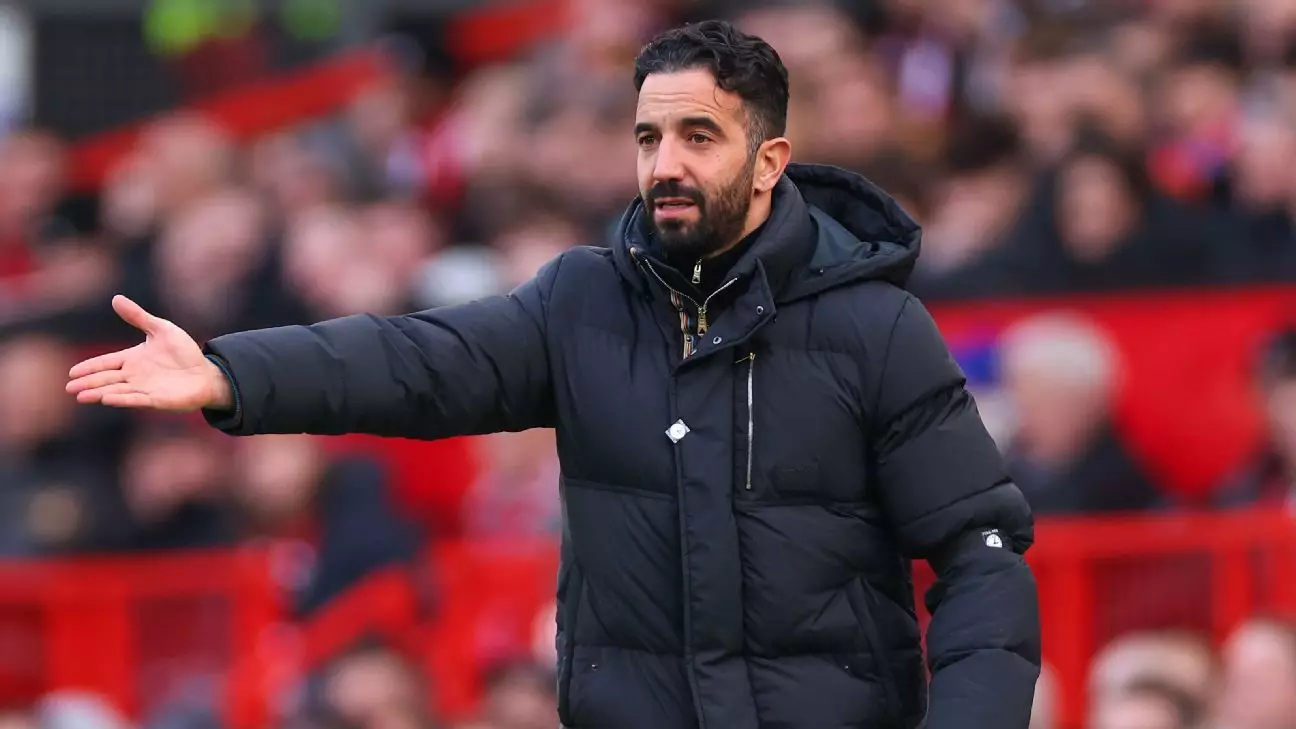Ruben Amorim, the manager of Manchester United, faces an uphill battle regarding squad management amidst a harsh financial climate. With restrictions tightening around player expenditures, Amorim has made it clear that the club must first offload players before any new recruits can join the ranks. This reality underlines a broader problem not just for United, but for many clubs operating under the constraints of Financial Fair Play (FFP) regulations.
In a recent news conference, Amorim bluntly stated, “To do something we need to sell players.” This acknowledgment signifies a pivotal shift in the club’s strategy. The concept of a squad overhaul, which often energizes a fan base, is tempered by the necessity for financial prudence. The current roster has already seen key loans—Marcus Rashford, Antony, and Tyrell Malacia—while the acquisitions of promising talents like Patrick Dorgu and Ayden Heaven aim to rejuvenate the squad. Yet, these moves are not without complication; the need for player sales first casts a long shadow over Amorim’s summer ambitions.
Financial health is crucial for any football club, and United is no exception. Reports indicate potential additional job cuts within the organization, which already saw over 250 staff members lose their jobs following Sir Jim Ratcliffe’s takeover of football operations. These staffing reductions reflect not only the desire to balance the books but also the immense pressure that accompanies operating a major football club today. Amorim’s remarks reveal an understanding of these financial challenges, yet he insists that fiscal discipline should not detract from his coaching objectives.
Amidst these constraints, the weight of expectation remains heavy. Amorim emphasized the need for a resilient core of young, talented players that can withstand the pressures of top-flight football. He noted the struggles faced by new signings like Dorgu, who demonstrated initial nerves on the pitch. Cultivating a robust team culture that fosters confidence will be pivotal for the club’s success moving forward, an aspect that has seemingly faltered in recent months.
While discussing the evolution of the team, Amorim remained pragmatic, emphasizing the immediate task at hand: preparing for Tottenham. The upcoming match is emblematic of the club’s current state—a potent reminder of the need for immediate results in a pressured environment. The manager’s focus on the next game suggests a short-term strategy, necessary in a volatile landscape where each match can influence broader assessments of success.
The road ahead for Ruben Amorim and Manchester United is fraught with challenges, but understanding the financial landscape may provide a clearer path forward. By prioritizing strategic player sales and fostering a nurturing environment for young talent, Amorim may yet reshape the future of the club amidst its financial hardships. As the industry continues to evolve, the balance between fiscal responsibility and competitive integrity will remain a critical battlefield for clubs like Manchester United.

